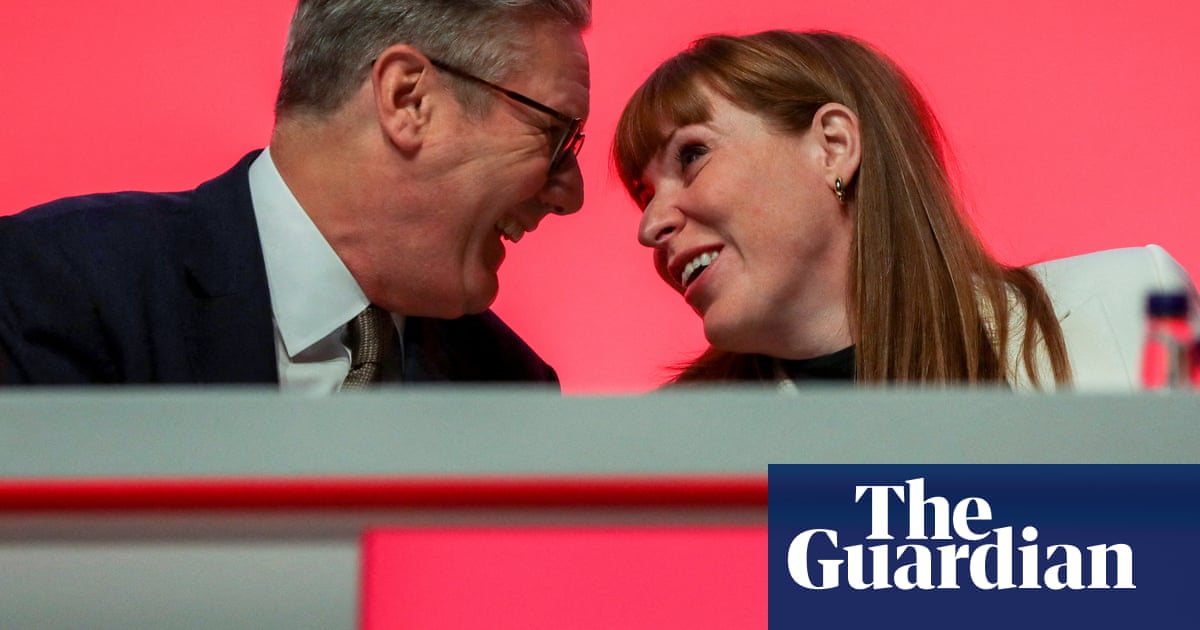What is Angela Rayner up to? To every Labour MP reading the leaked memo in theDaily Telegraphsetting out the deputy prime minister’s alternative tax-raising measures, it felt like firing the starting gun on a race to succeed Keir Starmer as leader.
It has infuriated Starmer loyalists because of long memories of the breakdown in relations afterLabourlost the Hartlepool byelection just a year into Starmer’s leadership, when he considered quitting and allies of Rayner encouraged her to stand against him. Starmer then attempted to demote her, leading to a fierce standoff and Rayner emerging with a clutch of new job titles.
Relations have somewhat healed since then, but there is a feeling now that the deputy prime minister is once again seeming to try to capitalise on the party’s misfortunes – an allegation considered deeply unfair by those close to her.
There is no doubt this memo setting out new ways ofraising taxes on wealthy peopleas well as a proposal to clamp down on benefits for migrants is a way of trying to show her broader appeal. “She’s trying to put clear water between her and Keir,” one senior source said.
Sources close to Rayner say the suggestions made in the letters ahead of the spring statement are par for the course, intended to be helpful ideas in Rayner’s capacity as deputy prime minister, for which she has her own mandate.
They insist they were not documents intended to be leaked to show she has diverged from Starmer and Rachel Reeves on the economy, arguing that the Telegraph would not be their chosen vehicle were that the case.
But plenty in No 10 and the Treasury see this as obvious manoeuvres. “Sorry but this is not normal,” one said.
Supporters of Rayner have quietly been conducting unauthorised focus groups to find out how she would fare in the event of a leadership campaign. They say the results show she fares well with voters in terms of authenticity and compassion. What she needs to show is that she is a serious politician.
Whether or not a Rayner ally was responsible for leaking the memo to the Telegraph, some close to her believe it will have helped. “We want to prove she’s serious; this is a serious memo,” said one.
Others disagree. One Labour source joked that the policies looked like they had been generated by ChatGPT.
For those who would like to see more bold thinking, Rayner’s challenge from the left within the cabinet is a good thing. Should Reeves follow any of these measures in the October budget, in which everyone expects taxes to rise, then Rayner can claim credit. If Reeves does not, Rayner has a credible argument that different choices could have been made.
But there is little in the memo that argues for anything as bold as some MPs on the left have been pushing for, such as a major overhaul of the tax system.
“I think all this does at the moment is help Keir,” said one MP who has been critical of the leadership. “Who is an alternative, given no one has any ideas? The question isn’t what candidate but why? This is more than a [communications] problem. It’s existential.”
The deputy prime minister is by far the grassroots’ favourite for the top job and would have the sweep of trade union backing. Her popularity with members is significantly higher than that of her most obvious rival, Wes Streeting.
Those MPs who would like to see a woman succeed Starmer but have doubts about Rayner admit they have no obvious candidate. Reeves and Bridget Phillipson no longer have the widespread admiration they had in opposition.
It is no secret that a significant contingent of cabinet ministers and MPs – far beyond the usual suspects on the left of the party – would like to see a radical economic reset in the wake of this month’s local election results.
Even the Labour Growth Group, a contingent of loyalist MPs once mockingly called “the provisional wing of the Treasury”, have decried the current strategy as “stuck in an economic doom loop”.
Some close to Rayner say she has been bruised by the scrutiny of her family during the row over the sale of her former council house. But they admit that should the opportunity arise, she would be almost certain to put herself forward for leader.
“She is the de facto leader of the soft left,” said one. “She pretty much won’t have a choice.”
Rayner is not the only one positioning herself for a future leadership bid. Many Labour figures believe the next leadership contest is likely to come down to her against Streeting, who is far to the right.
Labour MPs point out that Streeting has been diligent in courting the ranks of new backbenchers. Despite his high-profile government position as health secretary, sources say he recently hosted a karaoke evening with backbenchers where he bought drinks, and he constantly checks in on MPs’ angst on the WhatsApp groups and in the tea rooms.
“The next leadership will be either Wes or Angela,” said one Labour figure. “It will be head versus heart.”
